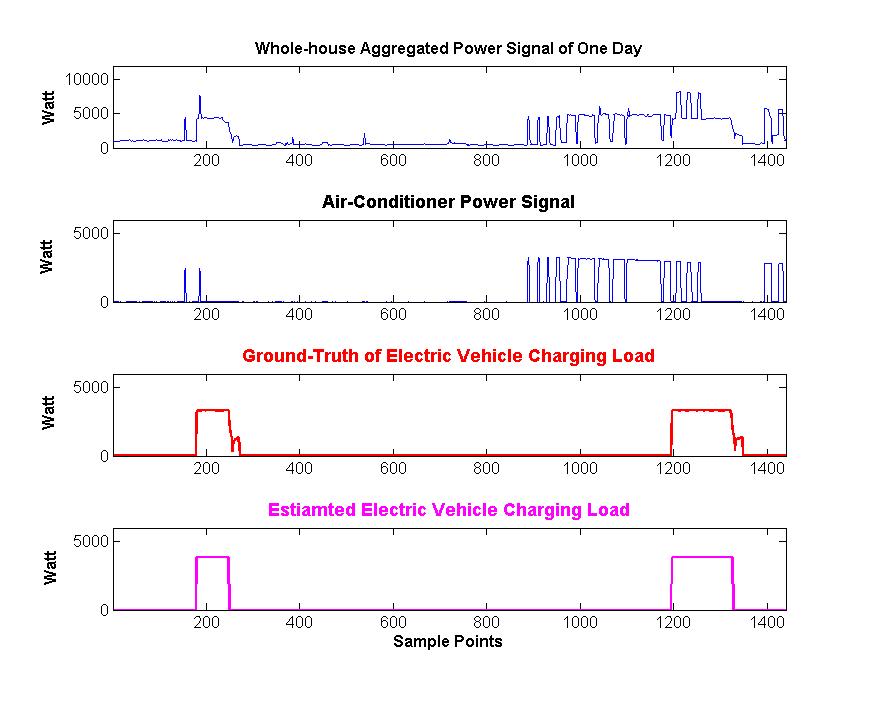博文
Non-intrusive load monitoring of electric vehicle charging
||
最近一篇关于non-intrusive load monitoring of electric vehicle charging的工作被IECON 2014 接收。应该算是在non-intrusive load monitoring这个问题上第一篇针对electric vehicle charging load的energy disaggregation 工作吧(基于真实采集数据,而非仿真数据 )。
文章下载地址: http://arxiv.org/abs/1404.5020
相关的代码下载地址:http://www.mathworks.com/matlabcentral/fileexchange/47474-iecon2014-codes-zip
(代码包里还有一个月的一个房子的真实数据,包括whole-house aggregated power signal,以及各种电器的power signal的ground-truth。数据来自于Pecanstreet Database。)
文章信息:
Zhilin Zhang, Jae Hyun Son, Ying Li, Mark Trayer, Zhouyue Pi, Dong Yoon Hwang, Joong Ki Moon, Training-Free Non-Intrusive Load Monitoring of Electric Vehicle Charging with Low Sampling Rate, The 40th Annual Conference of the IEEE Industrial Electronics Society (IECON 2014), Oct.29-Nov.1, 2014, Dallas, TX
摘要如下:
Non-intrusive load monitoring (NILM) is an important topic in smart-grid and smart-home. Many energy disaggregation algorithms have been proposed to detect various individual appliances from one aggregated signal observation. However, few works studied the energy disaggregation of plug-in electric vehicle (EV) charging in the residential environment since EVs charging at home has emerged only recently. Recent studies showed that EV charging has a large impact on smart-grid especially in summer. Therefore, EV charging monitoring has become a more important and urgent missing piece in energy disaggregation. In this paper, we present a novel method to disaggregate EV charging signals from aggregated real power signals. The proposed method can effectively mitigate interference coming from air-conditioner (AC), enabling accurate EV charging detection and energy estimation under the presence of AC power signals. Besides, the proposed algorithm requires no training, demands a light computational load, delivers high estimation accuracy, and works well for data recorded at the low sampling rate 1/60 Hz. When the algorithm is tested on real-world data recorded from 11 houses over about a whole year (total 125 months worth of data), the averaged error in estimating energy consumption of EV charging is 15.7 kwh/month (while the true averaged energy consumption of EV charging is 208.5 kwh/month), and the averaged normalized mean square error in disaggregating EV charging load signals is 0.19.

https://m.sciencenet.cn/blog-765184-817782.html
上一篇:欢迎参加2015 IEEE Signal Processing Cup
下一篇:利用PPG信号检测心率的文章被IEEE T-BME 接收了